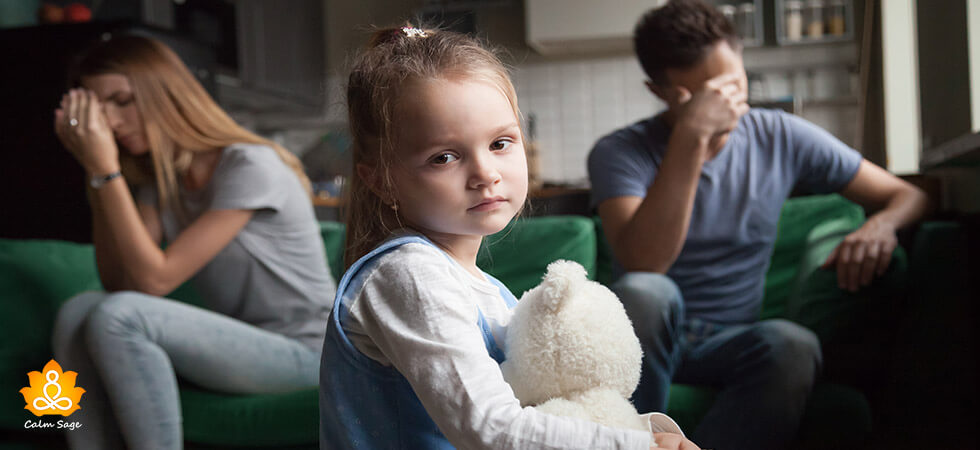What is Uninvolved Parenting And Tips To Deal With Uninvolved Parenting

What is Uninvolved Parenting?
Uninvolved parenting is also known as neglectful parenting. Uninvolved parenting is basically a style that is characterized on the basis of a less responsive nature towards the needs of your child.
Generally, uninvolved parents or neglectful parents have no demands with their children and they often act dismissive, neglectful, and indifferent which directly impacts the mental health of their child.
Also Read: Styles Of Parenting And Their Impact On Children
To put it in a nutshell, parents who are not emotionally involved with their kids are a reflection of uninvolved parenting. Such parents provide food and shelter but lack of mental support and uninvolved nature results in considering them as uninvolved or neglectful parents.
Despite providing kids everything they need, emotional support and affection make them uninvolved parents.

Characteristics of Uninvolved Parenting Style
- Uninvolved parents are emotionally distant.
- Limited interactions and overwhelmed nature is the major characteristic of uninvolved parenting style.
- No supervision at all
- No demands and expectations from their kids.
- Less love and affection towards their kids.
- Skips parent-teacher meets and school events.
Uninvolved parents are low on parental demandingness and parental responsiveness. They rarely offer guidance or set rules for their children.
Causes of Uninvolved Parenting

Below are some common causes of uninvolved parenting style:
- They are being raised by dismissive or uninvolved parents. They are repeating the same pattern.
- They are caught up in their busy lives.
- They find the hands-off approach easy to deal with kids.
- They are already wrapped in their own problems like depression, substance abuse, or overworked.
Effects of Uninvolved Parenting:

Kids raised through uninvolved parenting style have effects like:
- Stress or anxiety due to the lack of support and response.
- Emotional withdrawal
- Fear of becoming dependent on other people
- Increased risk of substance abuse
- Forcefully learn to provide support to themselves
- Exhibition of more delinquency during teenage or adolescence
Tips for Dealing with Uninvolved Parenting
1. Don’t assume, check for reality
As I stated above in the causes section, there is always a reason. No parent can hate their children. Therefore, if you’re assuming that your parents do not love you or are a part of uninvolved parenting, then you must go for a reality check.
Check what they are going through, maybe they are in need of your support, maybe they are going through some office-related problems; maybe their marriage is not working.
PS: Do not assume, go for a reality check.
Also Read: My Mom Hates Me: 8 Things To Do When You Feel Your Parent Hates You
2. Examine the barriers
As I said above, go for a reality check and then decide if they are really into uninvolved parenting. Examination of the barriers will help you to learn the cause behind their behavior.
Maybe they do not have time for attending your school functions, maybe they do not have enough money to complete your demands, and maybe they are working during odd hours. Therefore, try to examine the barriers before judging them and act accordingly.
3. Flexibility is the key
Once you have examined and stopped assuming, now it’s time to stop blaming your parents as “uninvolved.” Sometimes, some methods and systems are too rigid for people with unusual circumstances. How long are you going to hold grudges against them?
Try to be flexible, give them time and space to understand your needs. Do not play blame games, just try to understand situations, maybe they are in need of you. Maybe they need you to understand their problems. And, this can only happen when you will be flexible towards them.
You can also try the team parenting method to raise your kids in a calm way.
4. Provide leverage
The parent-child relationship is the only relationship wherein leverages can be provided. If you’re getting sad about the fact that your father didn’t show up at your basketball match today, maybe he attended all your parent-teacher conferences.
If you’re worried that your mother could not cook your favorite food today, remember that time when you were sick and she completed all of your demands. Trust me, leverages and understanding can help you to improve your parent-child relationship.
5. Seek Support when required
If you have tried all the ways to improve your parent-child relationship, it’s time to seek help from a professional counselor. A professional counselor will help you to improve your relationship with your parents or your child.
If you’re looking for help via online therapy systems, consider BetterHelp. BetterHelp is the fastest growing and top recognized platform for online therapy and counseling.
To connect with a mental health provider from BetterHelp Click Below.
Try Betterhelp Counseling Free for 7 Days
Disclaimer: As BetterHelp Affiliate, We may receive compensation from BetterHelp or other sources if you purchase products or services through the links provided on this page.
I hope this blog helps you to understand the uninvolved parenting style. Comment down and share which way you’re going to use for engagement with your child. For more such content, follow Calm Sage on all social media platforms.
Thanks for reading.
More power to you!




















